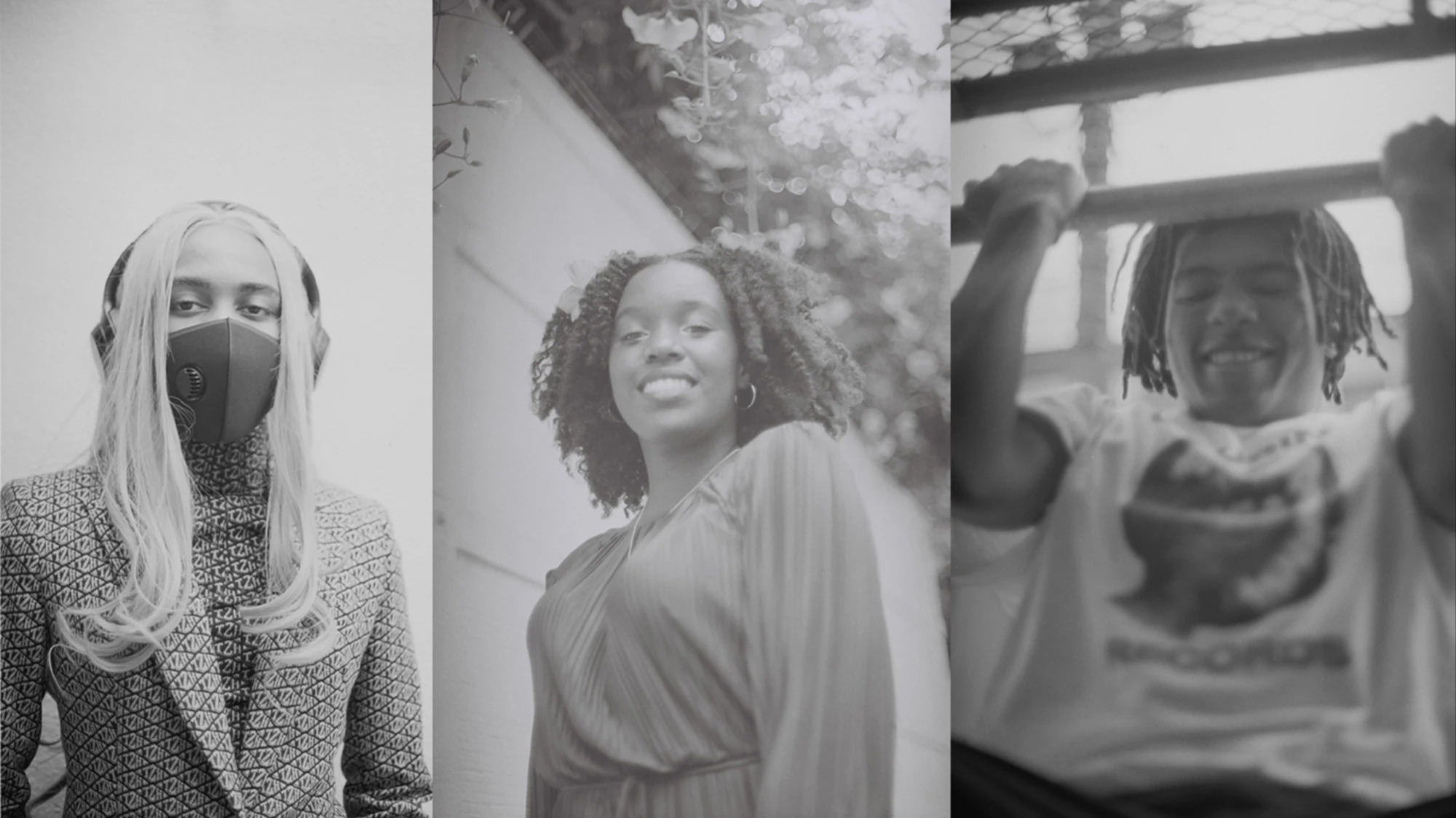Over the past few months, Black Lives Matter has become the most pressing social justice movement of our times. In cities from Madrid to Tokyo, protesters have taken to streets in their thousands to join the fight against police brutality and systemic anti-Blackness. Despite the global momentum, there remain parts of the world where the voices of local Black populations still go unheard. Japan is a case in point — despite being home to a Black diaspora, the experiences of the people that are part of it are often misrepresented, if represented at all, fuelling prejudice. This series of portraits and interviews is a step towards changing that, highlighting the diversity of Black experiences, stories and identities in Japan.

Moha, 21
What do you do? I’m a university student, model, and YouTuber. How long have you lived in Japan? Since I was four. Have you ever experienced racism in Japan? I’ve been told to “go back to my country” more times than I can count. I’ve had people reject me from various part-time jobs just because I’m Black. When I’m on the bus or the train, even when it’s super crowded, people don’t want to sit next to me. Because I’m foreign, landlords even tell me they won’t rent to me. If someone were to tell you there’s no racism in Japan, what would you tell them? To go fuck themselves. When did you first hear about BLM? When I was in high school, I went to visit family in Sudan. I was talking to my cousin, who was born and raised in the U.S, about racism and I vividly remember him turning to me and saying, “You just don’t get it.” That was the first time I learned about BLM. Tell us what Kebab Channel, your YouTube channel, is about. We put out content that’s fun and brings a smile to everyone’s face. You uploaded a video called “A foreigner born and raised in Japan talks about racism”. What was the response like? The response was great, but when I looked at the comments, I realised that we still need progress. There were people who didn’t mind writing the N-word and people who told me to get out of Japan. What do you think is the most misunderstood thing about BLM? There are too many people who think that there is no discrimination in Japan. There’s a lot of unconscious discrimination that occurs on a daily basis. What is your hope for Japan? Compared to the rest of the world, the number of gaijin [people of non-Japanese ethnicity/nationality] in Japan is still small, but the number is sure to increase. So if we start learning more now, Japan will have a brighter future.
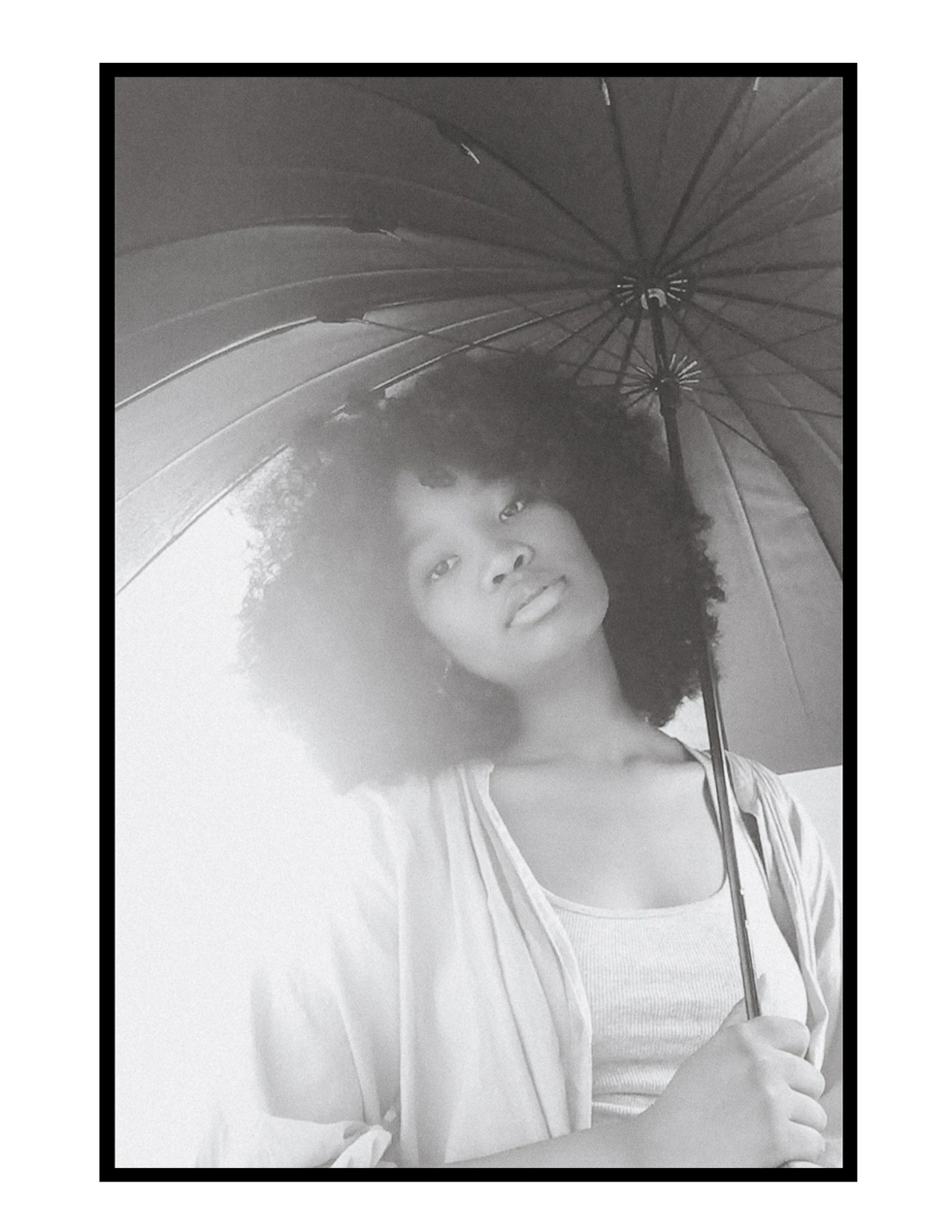
Amina, 20
What do you do? I’m a student and illustrator in Sendai. How long have you lived in Japan? 13 years in total. If someone were to tell you there’s no racism in Japan, what would you tell them? Anti-Korean sentiment, anti-Chinese sentiment, abuse and exploitation of immigrant workers, unjustified detention of immigrants, refusal to hire Black/Brown individuals in various industries: these are all acts of racism. With a rise in net immigration over the past few years, it is crucial for Japan to face the implicit biases fueling society. It may be unpleasant and inconvenient to acknowledge the urgency of these problems — it will definitely pull you out of your comfort zone — but these individuals who are discriminated against need your attention. Please take it upon yourself to learn and listen to the stories of the individuals marginalised in Japan. I hope you step out of your bubble and confront reality. What inspires your art? It’s inspired by whatever my mind looks like at the moment of drawing. I don’t have a particular thought during my process, I just take a pen and draw. It’s similar to breathing, it’s deliberate but also involuntary. What projects are you currently working on? I’m personally not working on any projects however there is a new platform called COMMU that I am particularly keen on following and seeing grow. It’s a Japan-based social justice community platform aimed at providing a space for conversations and discourse on social justice. It’s extremely relevant in Japan today. I think spaces like this are vital in creating opportunities for people across various backgrounds to connect to share knowledge. What is your hope for Japan? I think the most hopeful anyone can be about any country is in the youth and children. Everyone looks to us for some sort of hope. I don’t know if there is a right or wrong in doing so but I would agree. I’m hopeful about us. To see so many people rally together in protests to fight for Black Live Matter in Japan truly makes me happy. I think that is a sign that people listen here. I never thought that Black/Brown people would become this visible and heard in Japan. As a half-Japanese Black woman, I want to do as much as I can to contribute to building an inclusive Japan.
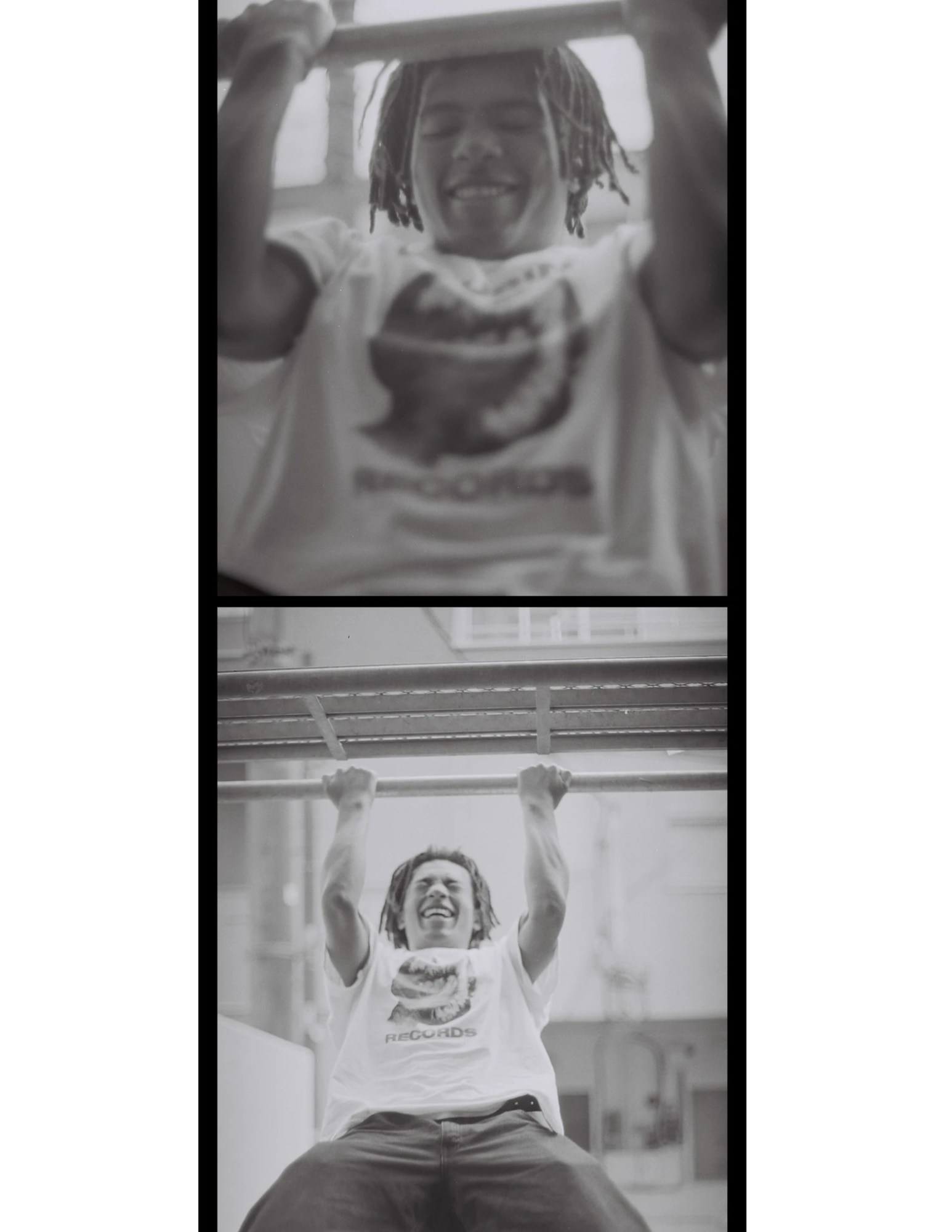
Daisaku, 17
What do you do? I’m in high school. I make collages and skateboard. How long have you lived in Japan? I was born and raised here. Have you ever experienced racism in Japan? The experience that sticks in my mind is one I had in elementary school. People would beat me up and verbally abuse me, and the adults and teachers would just watch and talk badly about me. They called my mother a whore who liked foreigners and a bitch. It was as if they denied my existence. Nowadays there is more understanding of foreigners and half-Japanese people than in the past, but I still get discriminated against from time to time. It doesn’t bother me so much anymore, but it’s still very difficult to live with. When did you first learn about BLM? I found out about it from Kay, a friend of mine in the U.S. He and some other friends of mine were attending a protest in New York City. Kay is Japanese, but he stood at the front of the line. And even though they tear-gassed him twice, he was still calling for justice. That really moved me. That’s when I thought to myself: “Why am I not fighting when my friends are fighting?” On InstaTV, you spoke about your experiences of discrimination and the power of the younger generation. What kind of response did you get? I’ve received so many messages, not just from the people around me, but from complete strangers and people who have been through the same things. What do you think is the most misunderstood thing about BLM? People think it’s only a problem between Black and white people. Discrimination also exists against women, people with disabilities, LGBTQ+. And Japan has a history of discrimination against Korean and Chinese people. And there are times when discrimination is unconscious. It’s important to put yourself in the other person’s shoes and have compassion. Let’s have discussions, speak out, take action and make a difference!

Mohamed, 22
What do you do? I’m a web designer for a company in Tokyo. How long have you lived in Japan? I was born and raised in Japan. Have you ever experienced racism in Japan? I’ve experienced discrimination in Japan: being stared at, people not sitting next to me or talking about me while looking at me. They might say that’s not discrimination, but I’ve experienced this since I was a child and it’s painful. If someone were to tell you there’s no racism in Japan, what would you tell them? I’d say it’s hard to notice unless you’re the one being discriminated against. What can readers do to help bring an end to racism? Discrimination in Japan is mostly caused by unconscious prejudice, which I think is difficult to eliminate. And it doesn’t just affect foreigners, Japanese people are often treated differently because of their gender, place of origin, sexual orientation and so on. I think the first step to eliminating discrimination is taking other people’s perspectives seriously and being careful in what we say and do. However, I believe that the majority of people reading this article are people who care about issues discrimination, and I think that sharing articles about racism on social networks would be a good place to start — so why not do it?
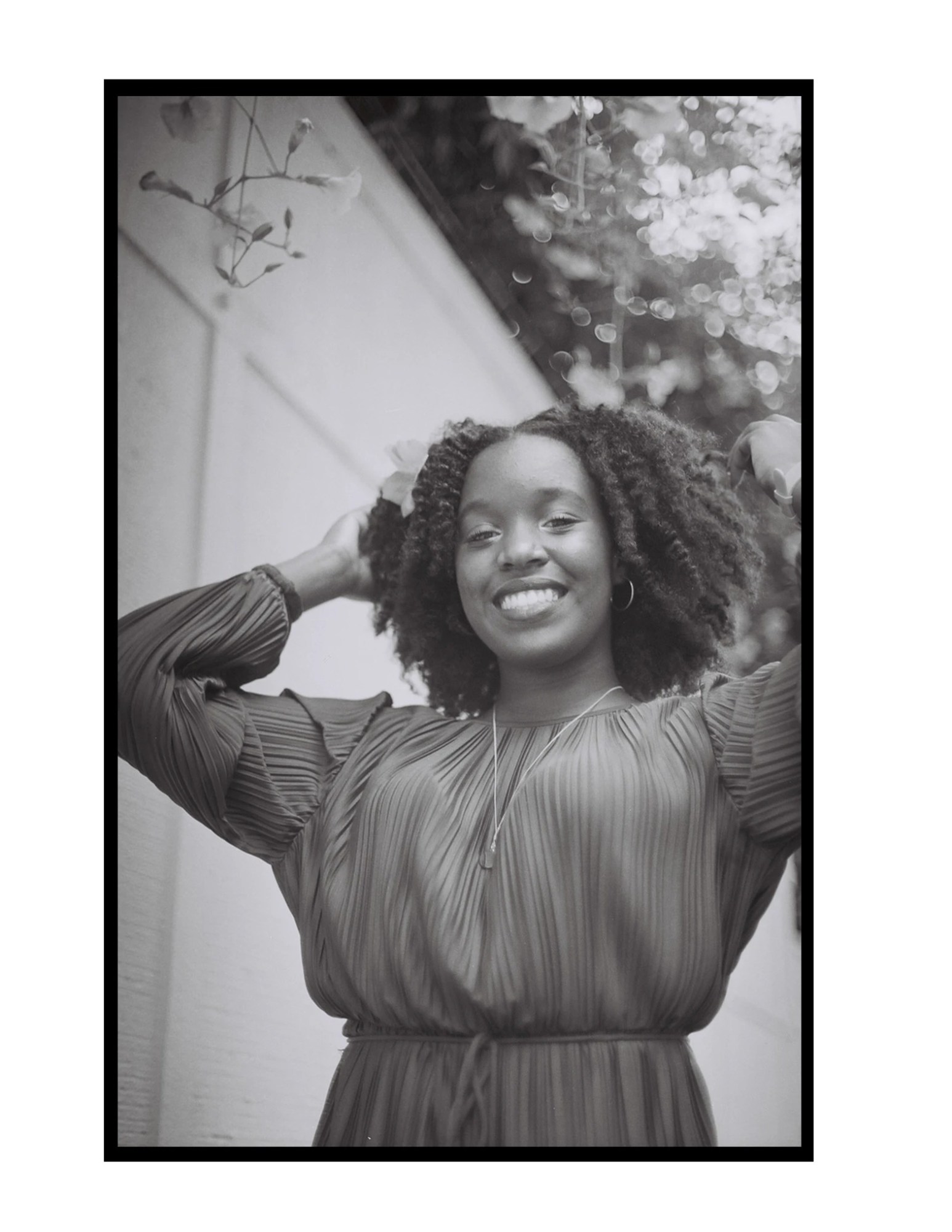
Tiffany Rachel, 22
What do you do? I’m a university student. How long have you lived in Japan? 16 years. I lived in the U.S. for six years in middle school and high school. When did you first learn about BLM? When I lived in America. There were many incidents of Black people who lived in my neighbourhood, or people I knew or whose families I met at church and school, who were murdered by white police, and the police would make false reports. It’s not an exaggeration to say that it happened every day. The situation of discrimination against Black people is so bad that I don’t want anyone who doesn’t already experience it to understand. If someone were to tell you there’s no racism in Japan, what would you tell them? To be honest, I was one of those people who said that. Because I had never been discriminated against in Japan, I insisted that ‘Japan doesn’t discriminate’. It wasn’t until I came back from the U.S. and heard about the discrimination I had suffered in Japan from some of my foreign and half-Japanese friends and my brother that I realised that discrimination was happening in Japan, too. What Instagram accounts would you recommend for learning about BLM and discrimination in Japan? @japaninsolidarity, @blmtokyojp, @hanasou.jp, @blossomtheproject and @donateyourloveandmoney. What’s the last thing you want to tell our readers? In the US, being ignorant is pretty looked down upon especially when it comes to racism. Even in Japan, there are phrases like ‘knowledge is power’ and ‘ignorance is a sin. But just having knowledge doesn’t mean anything if you don’t use that knowledge. I think there are a lot of people who had never heard of the BLM movement before this time, and awareness is an important first step, but if you don’t think about what you can do with it after you know about it, it won’t help the Black people who are struggling every day.
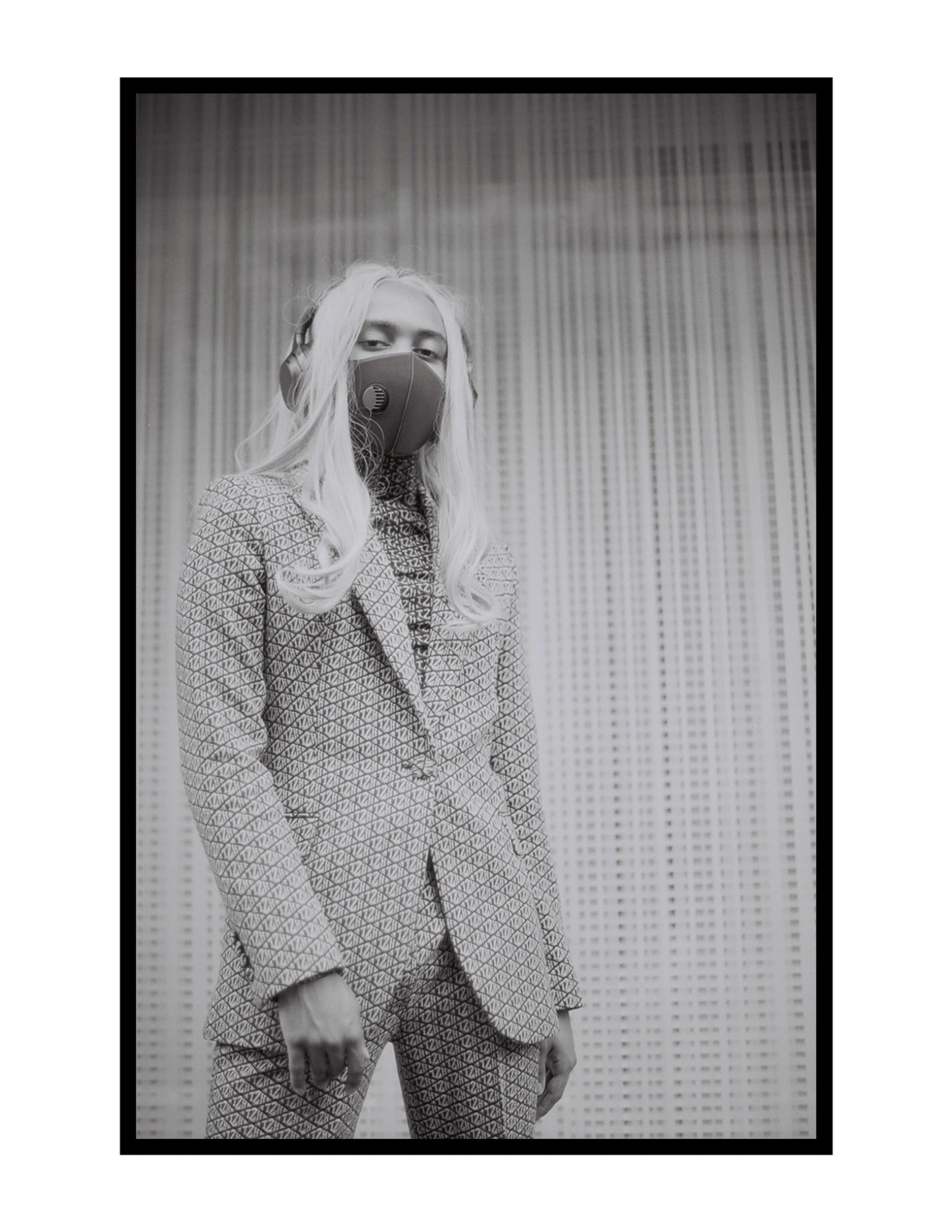
Austin Freeman, 24
What do you do? I’m a writer based in Tokyo. I typically write about fine dining, sociopolitical issues and pop culture. How long have you lived in Japan? 5 years. As a writer in Japan, do you feel it’s hard to have your voice heard? Exceptionally. Many of the articles coming out about Black Lives Matter in Tokyo, or Asia as a whole, have been written by white men, many of who have a track record for being racist. It’s ridiculous that in the midst of a civil rights revolution, editors look to white men for insight. This is not their field of expertise. What can readers do to help bring an end to racism? Listen to Black people. Listen to Zainichi Koreans. Listen to Muslims. If you’re Japanese and want to fight discrimination in this country, you need to accept the fact it exists. Do not play devil’s advocate when we discuss our experiences; they do not exist to be dissected. Study Japan’s history of Imperialism and the legacy of discrimination within this country will become clear. Arm yourself with knowledge, consistently and expeditiously. What do you think is the most misunderstood thing about BLM, especially in Japan? Everything. But most importantly, the violence. Japanese people have a fundamental lack of understanding when it comes to African-American history and the African diaspora as a whole. They see videos of Black people burning down buildings, they don’t see the videos of us being publicly executed. They don’t see the selfies police officers take with the deceased bodies of Black people. They don’t understand the 400 years of violence inflicted on Black bodies, they only see our reaction to it. Context must be provided if they are to understand BLM. What are you most hopeful about for the future of Japan? The next generations. By being vocal about my experiences with discrimination, I have seen a shift in my Japanese friends, and it is my hope that this trend continues among other minorities living here. As Japan continues to diversify, through both immigration and half-Japanese children, these discussions will happen on a more consistent basis. As the minority population continues to grow, they will find strength and unity among one another.
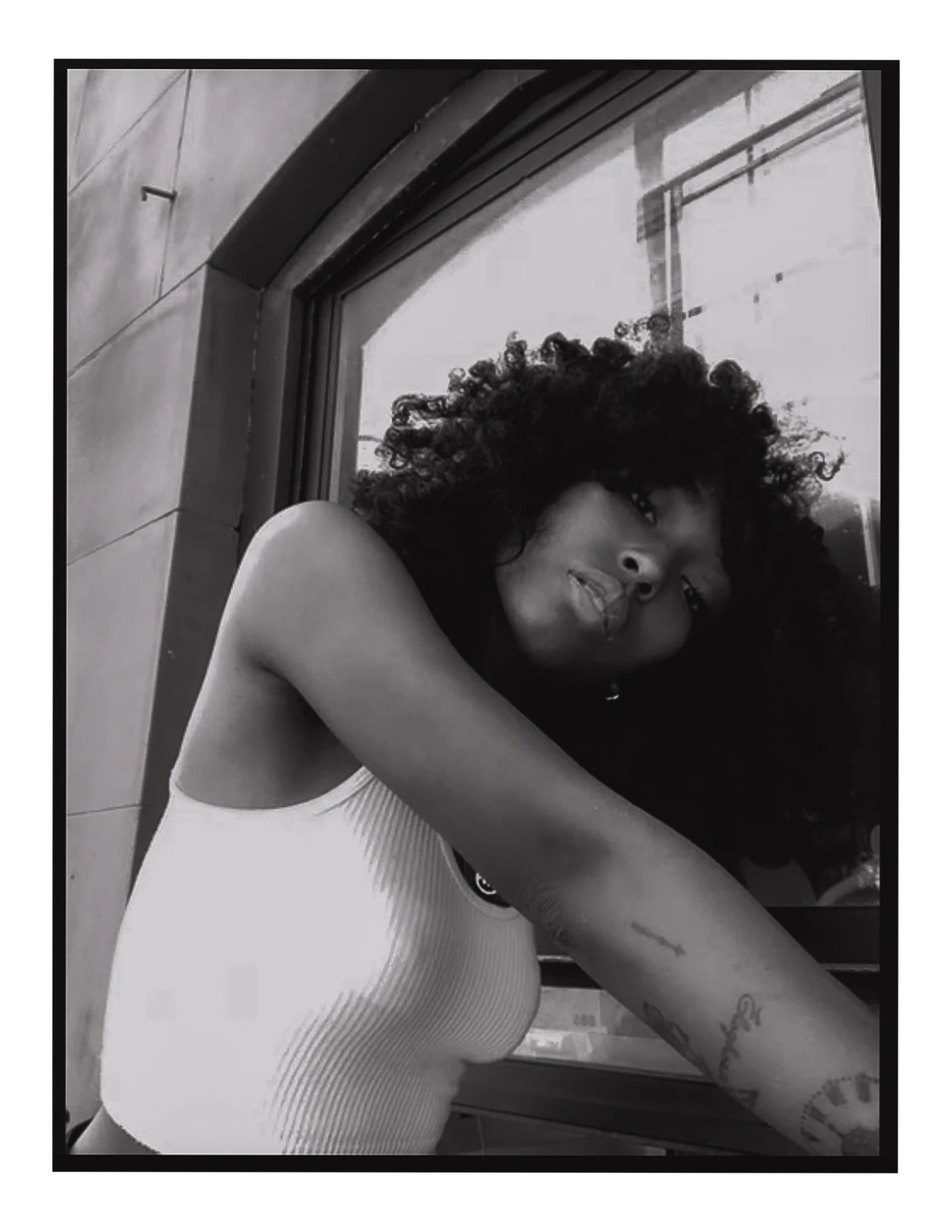
Lizzy, 21
What do you do? I study marketing at college in New York, I model and I YouTube. How long have you lived in Japan? 18 years. From birth to high school graduation. Why did you start your YouTube channel? There are a lot of half-Black kids like me, especially those who live in Japan, who don’t know how to do makeup, skincare and haircare that suits them. I wanted to tell them that beauty isn’t just about looking like a Japanese person. I don’t want them to give up on things because of their dark skin. An Instagram video of you talking about BLM has been viewed 2 million times. What kind of response did you get? I was honestly surprised that some people didn’t know that racism still exists until they saw my video. But those people are twice as willing to learn and communicate than those who knew about the discrimination in the first place. Have you ever experienced racism in Japan? In elementary and junior high school, I was always teased for dusting my hair and was told that my skin colour was burnt, dirty and smelly. At my first job in high school, I was fired after two months when the manager told me that some customers complained that they didn’t want to buy merchandise from a black woman. I tried to work at a new store, but was told that I would scare the customers and that I couldn’t work in front of people in Japan. What do you think is the most misunderstood thing about BLM? There are too many people who think they aren’t discriminated against. If you could give your old self some advice, what would it be? Be proud of your Blackness and don’t compare yourself to those around you.
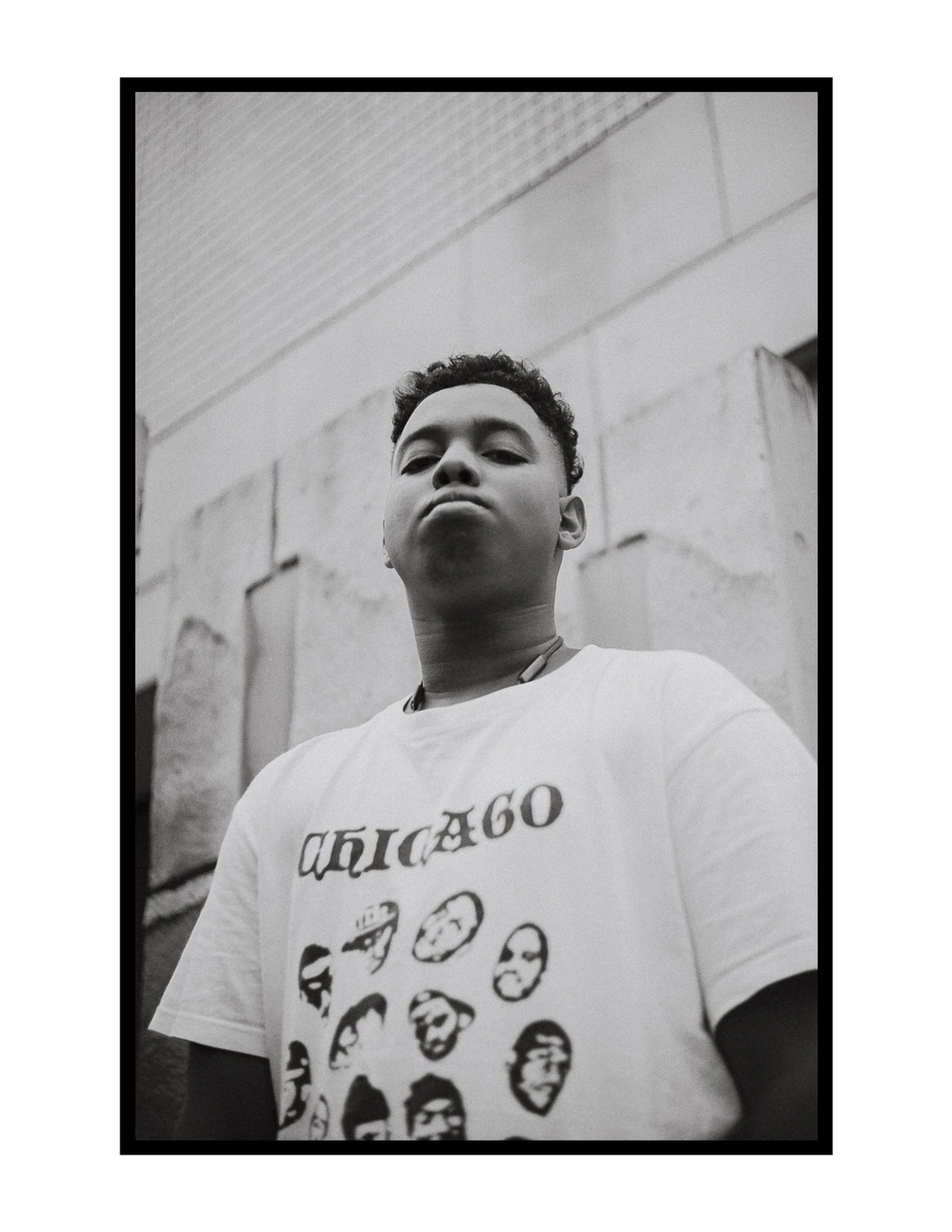
Ihab, 19
What do you do? I’m a university student. How long have you lived in Japan? 19 years. Have you ever experienced racism in Japan? When I was young, I was often bullied because of the colour of my skin. But I think this is something kids do out of ignorance, so I don’t hold it against them and I don’t think about it. What do you think is the most misunderstood thing about BLM? There were quite a few people who said there was no discrimination in Japan. If someone were to tell you there’s no racism in Japan, what would you tell them? It’s wrong to say there is no discrimination. A lot of Japanese people don’t discriminate against us directly because many people are afraid of black people and foreigners. But there are people on social media who say ‘go back to your country,’ and I’ve had people say that to my face. What can readers do to help bring an end to racism? It’s simple: don’t do things to people that you don’t like being done to you. It’s not just Black people. Discrimination against Koreans and Chinese people is terrible and I want it to go away.
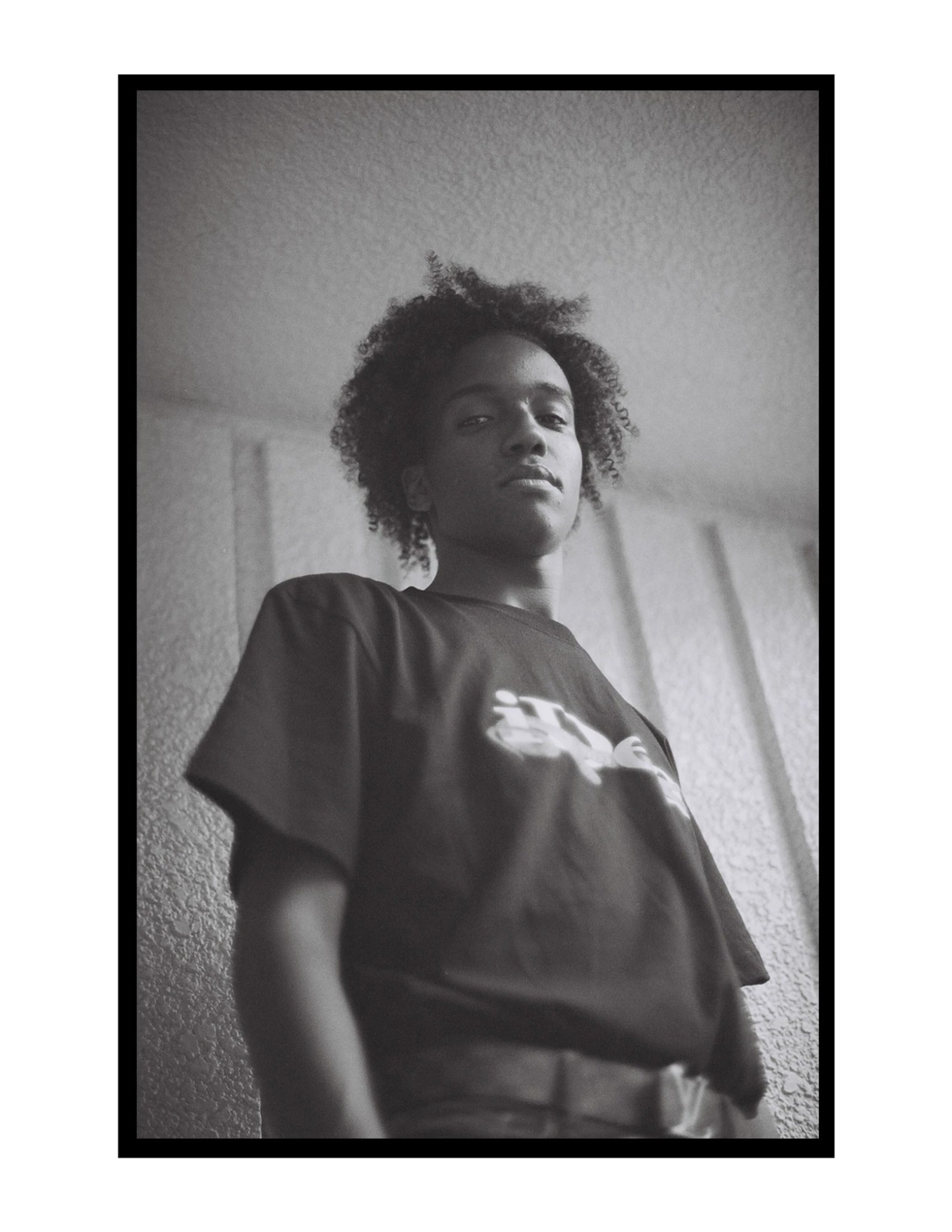
Mazen Azkari, 20
What do you do? I’m a college student, model and YouTuber. How long have you lived in Japan? About 17 years. Tell us about your YouTube show, Kebab Channel. It’s a comedy channel from four childhood friends who have been doing this since they were about five years old. Have you ever experienced racism in Japan? No one sits next to me, even on a crowded train. Everyone stares at me as if I’m a foreign object and won’t notice. When I was a student, I was bullied because my skin colour was different. On the phone, I will be having a normal conversation but once the other person hears my name, they start using broken or really simple Japanese with me because they think I won’t understand. And I can’t get a part-time job that literally any other person would be able to get. If someone were to tell you there’s no racism in Japan, what would you tell them? If there are people who are willing to say that, I think we should listen to them and talk it out. If they are still adamant in their beliefs, we should ask them if they are down to go through the same experience. They probably won’t be though, will they? What hopes do you have for Japan? I’m hopeful because there are a lot of half-Japanese and foreigners being born in Japan these days, and I think the definition of Japanese will naturally change. What’s the last thing you want to tell our readers? We’re all different and we’re all good. We learned that in elementary school, right? If you think that only applies to Japanese people, that’s something to re-think right now.
Credits
Photography Ameya
